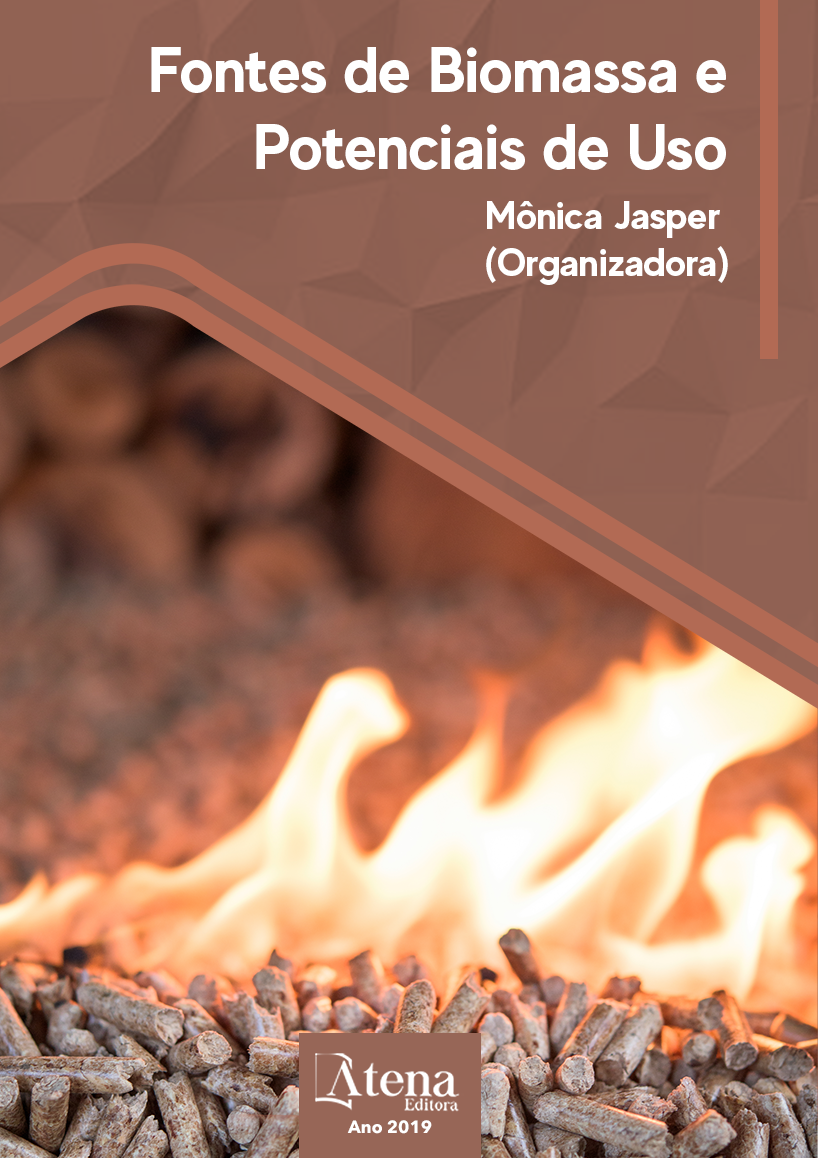
PRODUÇÃO DE ETANOL DE BATATA REFUGO VIA PROCESSO FERMENTATIVO: UMA PROPOSTA PARA A DESTINAÇÃO ADEQUADA DE RESÍDUOS ORGÂNICOS DE AMILÁCEAS
Estima-se que 25 a 30% da batata
produzida no mundo é desperdiçada em
forma de refugo por defeitos de aparência que
compromete a sua comercialização. Nesse
cenário, 24 mil toneladas de batatas foram
desperdiçadas no município de Guarapuava,
em 2018, de uma produção em torno de 97 mil
toneladas. Diante disso, a produção de etanol é
uma alternativa para a destinação que resulte
no mínimo de impacto ambiental. Por isso,
o objetivo deste trabalho foi produzir etanol,
via processo fermentativo, da batata Divina
Ágata, cultivar amplamente produzida no sul do
Brasil. A batata foi seca e processada na forma
de farinha e, posteriormente, determinada
a umidade. Com a batata in natura foram
determinados e quantificados atributos como:
sólidos solúveis, pH, acidez titulável, açúcares
redutores e teor de amido. A partir da farinha,
realizou-se o processo fermentativo com
Saccharomyces pastorianus e Saccharomyces
cerevisae, utilizando três concentrações
para cada levedura, antecedida de hidrólise
ácida com HCl para conversão do amido em
açúcares simples. O mosto da fermentação
foi centrifugado, destilado e a análise de teor
alcoólico foi realizada por espectrofotometria,
conforme a norma NBR 13920. A fermentação
com S. pastorianus resultou no mosto com 5,77
mL (v/v), enquanto a utilização da levedura S.
cerevisiae rendeu 5,48 mL (v/v) de etanol. Assim,
a produção de etanol em microescala, a partir
da fermentação de batata refugo antecedida de
hidrólise ácida do amido, obteve maior rendimento aplicando-se a fermentação com a
levedura S. pastorianus.
PRODUÇÃO DE ETANOL DE BATATA REFUGO VIA PROCESSO FERMENTATIVO: UMA PROPOSTA PARA A DESTINAÇÃO ADEQUADA DE RESÍDUOS ORGÂNICOS DE AMILÁCEAS
-
DOI: 10.22533/at.ed.2941916099
-
Palavras-chave: Resíduo orgânico. Biocombustível. Álcool. Agronegócio. Solanum tuberosum L.
-
Keywords: Organic waste. Biofuel. Alcohol. Agribusiness. Solanum tuberosum L.
-
Abstract:
It is estimated that 25 to 30% of the potato produced in the world is
wasted in the form of scrap because of defects in appearance that compromises its
commercialization. In this scenario, 24 thousand tons of potatoes were wasted in
the municipality of Guarapuava in 2018, of a production around 97 thousand tons.
Therefore, the production of ethanol is an alternative to the destination that results
in a minimum of environmental impact. Therefore, the objective of this work was to
produce ethanol, via fermentation process, of the potato Divina Agate, cultivar widely
produced in southern Brazil. The potato was dried and processed in the form of flour
and subsequently determined to moisture. With potato in natura were determined and
quantified attributes as: soluble solids, pH, titratable acidity, reducing sugars and starch
content. From the flour, the fermentation process was carried out with Saccharomyces
pastorianus and Saccharomyces cerevisae, using three concentrations for each
yeast, preceded by acid hydrolysis with HCl to convert the starch to simple sugars.
The fermentation wort was centrifuged, distilled and the alcohol content analysis was
performed by spectrophotometry, according to NBR 13920. The fermentation with S.
pastorianus resulted in the wort with 5.77 mL (v / v), while the use of yeast S. cerevisiae
yielded 5.48 mL (v / v) ethanol. Thus, the production of ethanol in microscale, from
the fermentation of refuse potato preceded by acid hydrolysis of the starch, obtained
higher yield by applying the fermentation with yeast S. pastorianus
-
Número de páginas: 15
- Wilma Aparecida Spinosa
- Juliano Tadeu Vilela de Resende
- Leonel Vinicius Constantino
- Edson Perez Guerra
- Leonardo de Lima Wrobel
- Wallace Lima Paulo
- Ana Elisa Barbosa Siqueira
- Claudia Jeorgete dos Santos Burko
- Taís Adeil Muller


